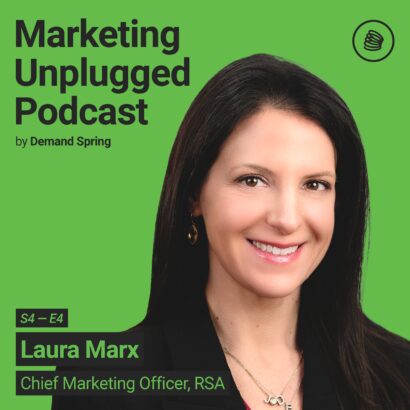Demand Springers love stories of transformation. They’re kind of what we’re all about, regardless of where or when we encounter them.
Over the holidays and over many long sips on some Woodford Reserve Bourbon, I happily transformed myself back into a reader of long-form content.
Really long-form. Specifically, SPQR, Mary Beard’s 600-plus-page, best-selling history of Ancient Rome.
SPQR is the story of Rome’s own transformation – from a “slightly shabby Iron Age village” on the banks of the Tiber into the “undisputed hegemon of the Mediterranean.”
It’s a powerful story, and, as Cambridge professor Beard makes clear, one with continued relevance in our own era. The foundation of our legal system, many of our political institutions, our ideals regarding public and personal virtues, even bits of our vocabulary, all stem from Rome’s own transformation.
Did you know Cincinnati is named after a Roman soldier?
For example:
- Did you know that candidate comes from the Latin candidatus, meaning “white-robed?”
- Or that Cincinnati took its name from Roman soldier Cincinnatus?
- Or that tribune stems from tribunus, for “head of a tribe,” and, later, one of the officers appointed to protect the rights of everyday Romans?
Neither did I. And that was just in the first hundred pages.
So, what made Rome different? How did it go from literal rags to glorious riches?
If I’ve understood Beard correctly, a key difference was that unlike their regional rivals at the time, Roman armies sought less to conquer their neighbors’ territory than their minds.
If you’re a marketer, that should tell you something.
Rome sought less to conquer their neighbors’ territory than their minds.
Rome built its empire by conferring citizenship and integrating outsiders. Yes, things were messy and violent. But after the battle, former enemies acquired Roman citizenship – a unique and powerful currency in the ancient world.
That currency stemmed from the stories that Romans created and told to themselves and about themselves.
Beginning with its founding myth of Romulus and Remus, few cities in the ancient world so exhaustively documented their evolution – or crafted as compelling a story – as did Rome.
Can you see where I’m going with this?
Being a Roman in the ancient world counted for a lot. Romans believed that their tenacity, industriousness, and courage – among many other qualities making up The Roman Way – enabled them to conquer and civilize the Mediterranean world. Their stories conveyed these qualities. Dramatically, creatively, and consistently over time.
If you’re a marketer, that should tell you something more.
Rome understood the power of its own narrative.
As the city grew, a succession of writers including the poet Ovid and the Greek observer Polybius added new chapters to the story. In volume upon volume, they revised older texts, filled in gaps (sometimes a bit too creatively, granted), and charted the intrigue stemming from the Capitoline hill. Roman stories conveyed Roman values.
And as its story grew, so, too, did its power.
Few cities in the ancient world so exhaustively documented their own evolution as did Rome.
Politicians, too, authored family and political histories. In the Forum, their speeches were copied, posted, and distributed widely to inform people of faraway battles, sway opinions, or attack rivals.
Some observers have gone so far as to call this the earliest form of social media.
The book ends in the year 212 CE, with Emperor Caracalla extending Roman citizenship to all free inhabitants of the empire. After this point Rome the city started to lose its competitive advantage in the region.
Also, Barbarians.
What does this mean for marketers? Simple.
As we’ve seen so many times before, story is a powerful tool.
As we’ve seen so many times before, story is a powerful tool. Perhaps the most powerful there is to influence behavior, change attitudes, and shape reality.
Rome understood the power of its narrative. Generations of Romans committed themselves to promoting and protecting it. Yes, the Roman army was an elite fighting force. But it was Rome’s ability to capture its’ subjects imagination through story to maintain control after the battle.
A compelling story can transform a population. We owe it to our organizations to promote and protect our stories with the same dedication we see in Ancient Rome.Transform Your Organization







